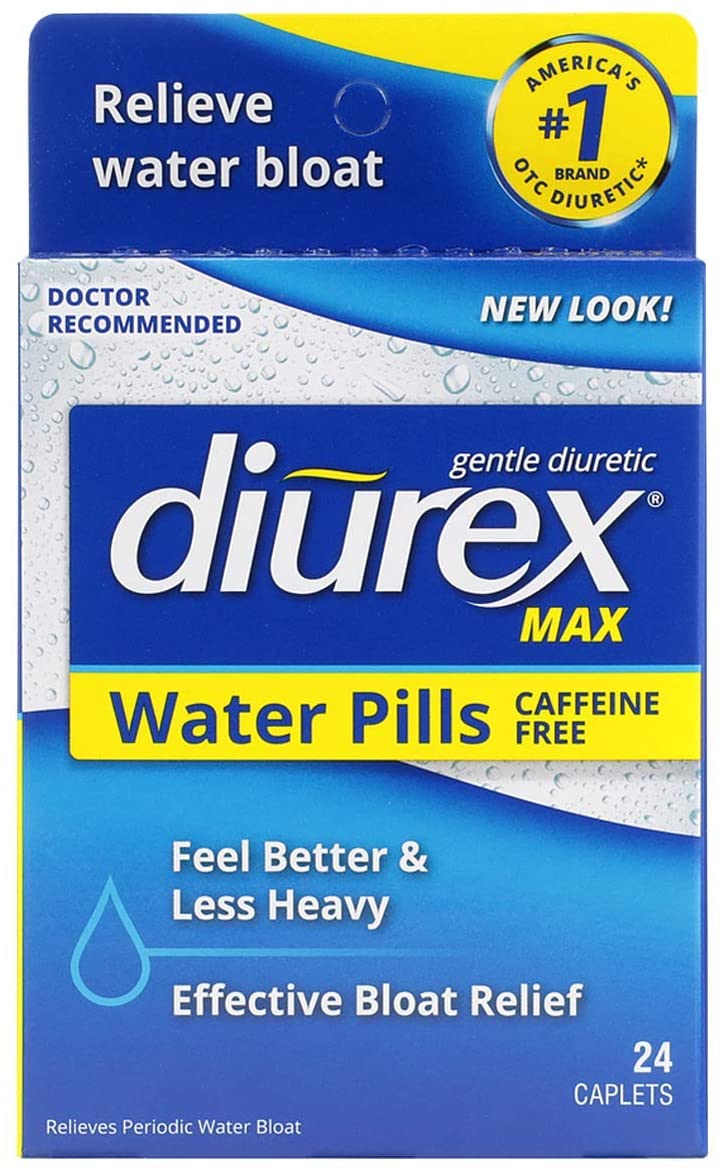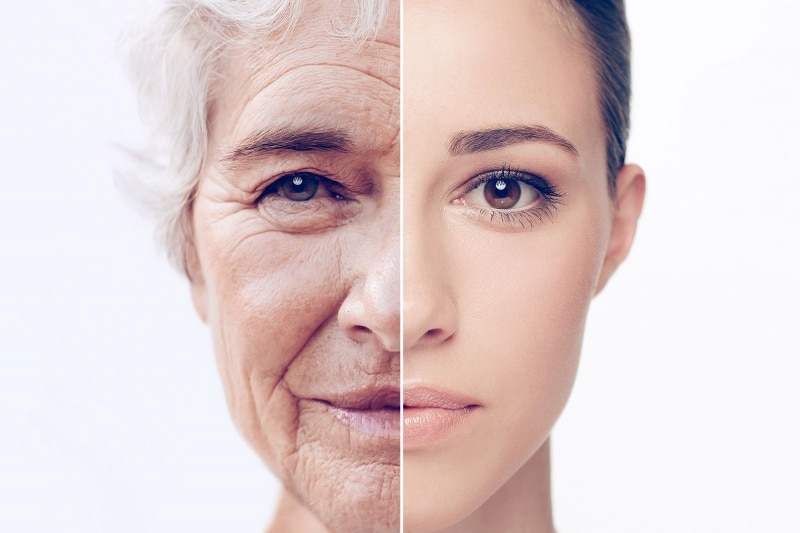Coffee is undeniably one of the most popular and most consumed beverages nowadays. In the US alone, over 85% of adults choose coffee as their daily fluid intake. And if you’re a coffee-lover, you may also hear different rumors and opinions about how coffee can be a diuretic, which explains the reason some people would go to the toilet once every 10 minutes after drinking a cup of coffee.
If you’re a coffee drinker, you may be familiar with the different types of coffee, with different content of caffeine; from the highest quantity like black coffee to regular coffee, and least like decaf coffee.
With the widespread of debatable opinions, make both regular coffee drinkers and non-coffee drinkers who want to try decaf coffee having second thoughts about whether to give it a go or not.
This article will serve to answer this often searched question; whether decaf coffee is a diuretic? First, we will provide a brief definition of the term decaf coffee and diuretic.
Contents
What is Decaf-Coffee?
Decaf coffee is shorter-term and comes from Decaffeinated coffee. With this term, you may catch a glimpse of what it refers to. Decaffeinated coffee is a type of coffee, in which the coffee beans have had at least 97% of caffeine extracted or removed.
Decaf Coffee is very desirable for those who would go for coffee with less caffeine but still has a unique taste and health benefits similar to regular caffeinated coffee.
How is Decaf Coffee Made?

Likewise to other regular coffee, decaf coffee started in the form of green, unroasted beans, in which the beans are warmed and soaked in liquid to extract caffeine. Then, the soaked, decaffeinated coffee beans are dried to their first moisture content. There are three main decaffeinated processes, including:
Carbon dioxide method:
Starting with the most expensive process among the three is using the CO2 method. In this process, the green coffee beans are soaked in supercritical CO2, with high pressure and temperature, making the caffeine exit from the beans into the CO2.
The CO2 is later pumped out through a filter of charcoal, resulting in only decaffeinated beans. Or, it can be pumped into an absorption chamber in which the CO2 is converted back into the form of gas, leaving the caffeine behind. However, since it is costly, the process is mostly used for a large quantity of coffee into lower grade decaf coffee.
Solvent method:
In this particular method, there is an additional use of chemical compounds such as either ethyl acetate or methylene chloride. First, the unroasted coffee beans are steamed then mixed with one of the 2 compounds to make them bond together. When it is readily bonded, we steam the beans again to remove the beans from the solvent and caffeine.
The Swiss water process:
Ending off with practically the safest and considerate among the three processes is the swiss water, in which most water is used. Firstly, again, the unroasted beans are soaked in warm water, causing the sugars, caffeine, oils, and other compounds to wander in the water.
Next, the extract undergoes a filter of activated charcoal to separate the caffeine again. And, since the water is filled with sugars, oils, and so on, it is easier to extract almost all the caffeine from the new combination of beans.
Is Decaf Coffee completely caffeine free ?
We all must have the same concept as when we think of coffee, caffeine also comes along. Different types of coffee contain different amounts of caffeine. This raises the doubt of whether decaf coffee is completely caffeine-free.
The answer is no. Decaf coffee still has a certain amount of caffeine content, as it is not possible to extract all caffeine from the coffee beans. Typical decaf coffee beans have 97 percent of caffeine extracted, which means for a regular 8-ounce cup of coffee, there is still approximately 2 to 6 milligrams of caffeine.
However, the caffeine quantity can also vary depending on some factors, such as the coffee brands, coffee beans, procedures, and so on. Read more on Coffee Truth About How Much Caffeine in Decaf Coffee for deeper details.
What is diuretic ?

A diuretic is a substance or material that causes your body (kidney) to boost more urine production than our a regular basis. Which results in additional removal of salt and water; also known as a water pill that can assist in lowering high blood pressure.
To explain it simply, to have diuretic effects is to experience plenty of annoying trips to the toilet after a few sips of drinks.
Moreover, diuretics don’t need to come in the form of medical pills; caffeinated beverages, soft drinks, energy drinks, natural herbs, also hold a certain amount of diuretic effect, which is called a mild diuretic effect. Those natural diuretics beverages include green and black tea, coffee, hibiscus, and more.
Is diuretic bad for health?
As a coffee drinker, there must have been times when you hear headlines, Facebook posts about how coffee has a drastic diuretic effect, which can dehydrate you and has adverse health effects.
However, diuretic effects do not necessarily cause an adverse effect on your health, if consumed rightfully. Beverages like coffee have only a mild diuretic effect, which somehow is crucial to have a cup of coffee, adding fluid intake daily.
Why is regular coffee a diuretic ?
Regular coffee is a diuretic, simply because of the caffeine content. Basically, any food or beverages that contain caffeine are diuretics, in which the effects vary accordingly to the caffeine content.
Studies show that caffeine increases the production of your urine, which explains the fact that when you drink regular coffee, chocolate, or tea; you would feel the urge to go to the toilet more than usual. But, that does not cause anything particularly harmful.
How much caffeine can cause a significant diuretic effect ?
Even Though, coffee and other beverages with caffeine do not cause serious diuretic effects; too much caffeine is never a good thing.
Caffeine may distribute many health benefits but also comes along with side effects. Hence, to safely drink, a moderate amount of caffeine needs to be taken.
Generally, it is safe to consume no more than 500 mg of caffeine a day, which is about 5 regular cups of coffee.
So, is decaf coffee diuretic ?
Here comes the main question of whether decaf coffee can still cause diuretic effects. As mentioned above, about the amount of caffeine in a cup of decaf coffee, and the caffeine levels that can cause huge diuretic effects; it is safe to say that decaffeinated coffee is not a diuretic.
As we know that decaf coffee went through a decaffeination process, in which decaf coffee beans have very little caffeine compared to regular coffee beans. A cup of decaf coffee may contain typically 2-6 mg of caffeine, and to reach a severe diuretic effect, it needs to exceed 500 mg. Hence, if a cup contains 5mg, you need to drink at least 100 cups to feel any diuretic drawbacks.
In this regard, pregnant women would also be likely to choose decaf coffee over other kinds for a certain period as it contains less caffeine; means fewer health risks. Therefore, drinking decaf coffee is a go-to choice in this situation.
Decaf coffee benefits to health

There are many differences between decaf and regular coffee but they both still have similar health benefits. Even by having most of the caffeine removed, this decaffeinated coffee still holds plenty of health benefits just like drinking regular coffee, including:
Reduced risk of Type 2 diabetes and liver function:
Studies show that drinking coffee whether it’s regular or decaf can help prevent the risk of diabetes, in which a single cup can reduce up to 7%. This protection effect comes from different elements in the coffee cup, including caffeine.
Moreover, researchers also suggest that decaffeinated coffee is linked to reducing liver enzyme levels, which helps protect the liver and ease functionality.
Helps with aging and neurodegenerative diseases:
Both regular coffee and decaffeinated coffee contain antioxidants that have positive impacts on your skin, making you look younger, and reduce aging.
Furthermore, studies have shown that caffeine also helps protect our brain by preventing dangerous neurodegenerative diseases, such as Alzheimer’s and Parkinson’s.
Help with sleep and anxiety:

We know that when we think of coffee, we think of it as a drink that brings out energy, keeps you awake, and stays productive for the day. However, it can also make you stay up all night due to the caffeine.
Therefore, decaf coffee, in which caffeine is reduced, can help you with your insomnia. Also, deal with anxiety problems. Other than that, it also reduces other side effects such as acid reflux.
Can you drink decaf coffee if you have caffeine allergies?
If you happen to experience unregular severe side effects from drinking coffee, then there is a possibility that you can have a caffeine allergy. In this regard, you may need to follow medical experts who keep track of your medical performance. If it is not severe, decaf coffee, especially the one that went through a swiss water procedure is highly recommended as it has 99 % of the caffeine removed.
Can you drink decaf if you have caffeine intolerance?
Likewise to coffee allergy, a certain caffeine intake should be discussed from expertise. However, caffeine intolerance is a less severe case than caffeine allergy. Hence, you should experiment safely, by trying a little amount and waiting. If you see side effects, then you should discuss them further with your doctors.
Should you switch to decaf coffee?
It is not recommended to just switch from your daily regular coffee intake to decaffeinated coffee just in a blink of an eye, for no particular reason. Because the change is so sudden, you will face caffeine withdrawal symptoms, including headache, dizziness, fatigue, depressed mood, as your body can not adapt so suddenly.
However, if you happen to experience that regular coffee is not suitable because of the side effects, such as diuretic, insomnia, but still want to drink coffee. Then, decaf coffee is a go-to choice. Just need to remember to take the process of alteration slowly, step by step, day by day, by reducing the caffeine you consume to make an adaptation before completely switching to decaf intake.
Final thoughts
In conclusion, to answer the main question of this article is decaffeinated coffee a diuretic; the answer is no, it is not. Decaf coffee went through a different decaffeination process to get the caffeine quantity reduced almost completely, which makes it very unlikely to have diuretic effects. Moreover, decaf coffee has many health advantages including help in blood pressure, heart disease, diabetes, sleep, anxiety, and more; which are essential for healthy adults to choose as their regular caffeine intake.
References
- Is decaffeinated coffee a diuretic? | Decadent Decaf
- Is Decaf Coffee a Diuretic? And Other Important Impacts of Switching to Decaf | Easy to Espresso | Zak
- Is Decaf Coffee a Diuretic? | The Old Coffee Pot | Brandon
Check out: Decaf Coffee: Healthy or Unhealthy? By Healthline
